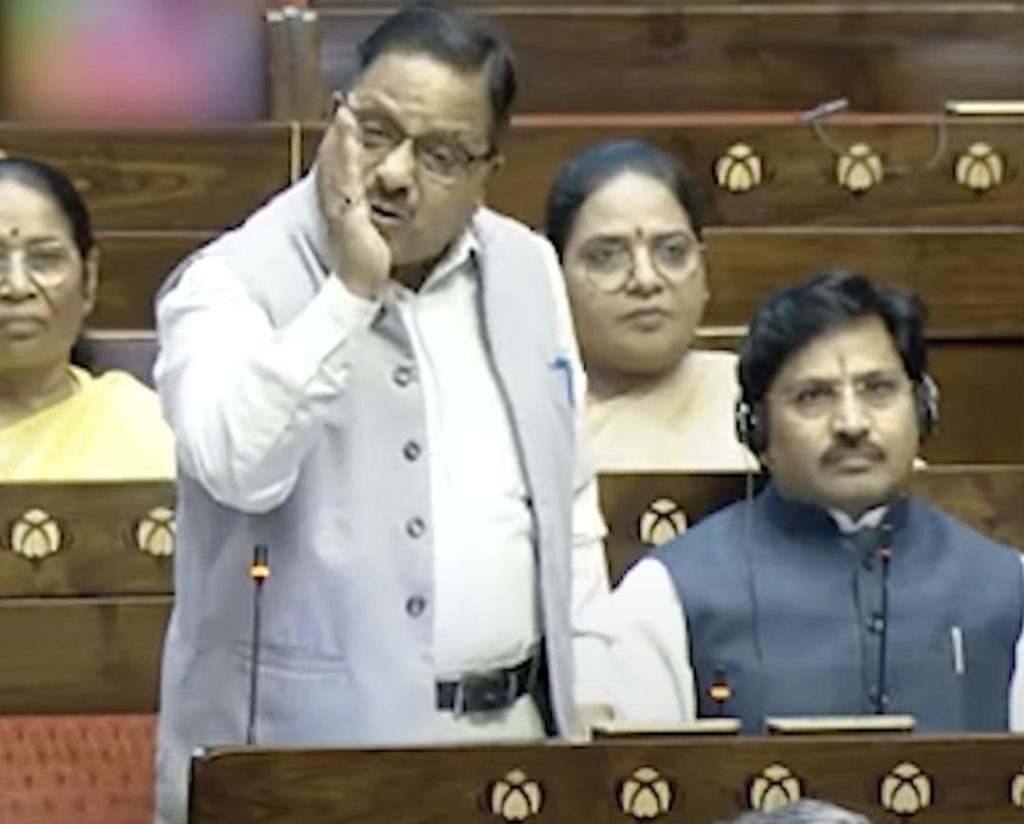
Should I Read Quran and Tell You What’s Written in It: BJP MP Radha Mohan Das on Waqf Bill
In the ongoing discussion on the Waqf Bill, a remarkable statement was made by BJP MP Radha Mohan Das during the parliament proceedings. As the debate unfolded, Das posed a thought-provoking question, sparking controversy and curiosity among the public. He asked aloud, “Should I read the Quran and tell you what’s written in it?” This statement has left many wondering about its significance and implications.
For the uninitiated, the Waqf Bill aims to reform and regulate the management of Waqf properties, which are religious endowments dedicated to the service of the Muslim community. The bill seeks to ensure transparency and accountability in the handling of these properties. However, the discussion has been marred by controversy, with some opposing the bill, citing concerns about its potential impact on the religious freedom of Muslims.
Against this backdrop, Das’s question assumes significance. What did he mean by asking if he should read the Quran and tell what’s written in it? Was it a genuine inquiry or a deliberate attempt to provoke debate? To understand the context and implications of his statement, it’s essential to delve into the content of the Quran and the relevance of his query.
The Quran is the holy book of Islam, comprising 114 chapters or surahs and over 6,000 verses. It is considered the word of God as revealed to the Prophet Muhammad over a period of 23 years. The Quran addresses a wide range of topics, including the nature of God, the origin of the universe, human rights, morality, and the importance of charity.
Das’s statement was in response to the Waqf Board’s inability to provide written records of the properties under its control. He quoted a specific verse from the Quran, which states that even if one rupee is given to anyone, there should be a written record. “The Quran says that even if one rupee is given to anyone, there should be a written record…And you say you have so many properties without a record,” he said, addressing the Waqf Board.
It appears that Das was highlighting the importance of transparency and accountability in the management of Waqf properties. He was suggesting that the Quran emphasizes the need for written records, which is precisely what the Waqf Board is being criticized for lacking. By quoting this verse, Das was drawing attention to the Quran’s emphasis on transparency and the potential consequences of not adhering to this principle.
However, some critics have interpreted Das’s statement as an attempt to provoke Muslims and create a controversy. They argue that his query is unnecessary and irrelevant to the debate on the Waqf Bill. They point out that the Quran is a religious text, and its content is not directly relevant to the discussion on the Waqf Bill.
On the other hand, some have argued that Das’s statement highlights the importance of religious texts in guiding our behavior and decision-making processes. They suggest that the Quran’s emphasis on transparency and accountability in the management of Waqf properties is a valuable lesson for all stakeholders involved in the debate.
In conclusion, Das’s statement, “Should I read the Quran and tell you what’s written in it?” has sparked a debate that extends beyond the confines of the Waqf Bill. It has raised questions about the relevance of religious texts in guiding our behavior and decision-making processes. While some have criticized his statement as an attempt to provoke controversy, others have seen it as a valuable reminder of the importance of transparency and accountability.
As we continue to navigate the complex and contested terrain of religious endowments and their management, it is essential to engage in honest and respectful dialogue. By doing so, we can work towards creating a more transparent and accountable system that respects the diversity of religious beliefs and practices.
Source: https://www.youtube.com/watch






